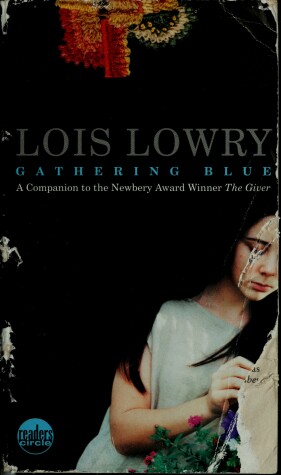Reviewed by nannah on
So I'd been wanting to read this ever since I'd first finished The Giver, and heard this book was better and included a protagonist who was disabled. Finally, I was able to get to it! Unfortunately, I ... really, reallydisliked it.
Book content warnings:
ableism
ableist slurs
I'm very doubtful that Lois Lowry actually considered disabled people would be part of her reading audience when she wrote this book. Or any part of the publishing team. Because this book is just too cruel.
"It's supposed to be!"
Okay, but reading this as a disabled person, there's something just unnecessarily cruel about an author creating a world where disabled people are killed right when they're born just for being disabled. And whenever someone becomes disabled, they're taken out to "the Field" to die just for being disabled.
And the protagonist, the one girl who actually manages to survive to girlhood with a twisted leg, gets hit with "you're just a burden on everyone", "cr*pple", etc., every day. Plus, there's this lovely bit:
"'She can't marry. No one wants a cr*pple. She takes up space, and food ...'"
The thing is, this is justwhat we disabled people hear in real life! It's what we tell ourselves in our lowest moments. And, to be honest, it's what some of our insurance companies tell us ("You have to choose between getting married and your insurance, lol. Not both. You can't marry.").
So I'm reading this book, and it feels like it's basically reaffirming all the crap I tell myself (and what everyone else tells me). And I'm 27! I can't imagine what a young adult/middle grade person with lower self esteem must think reading this. It doesn't matter if it's some made-up post-apocalyptic world. It's still the same words we hear from ourselves and other people we see every day.
On to the book itself, it set a really fast pace once the sluggish exposition was over, and it actually came to be kind of enjoyable! Of course, that was when all the slurs and ableist mentions slowed, and her disability wasn't mentioned nearly every other paragraph. AKA, She wasn't "Kira with the twisted leg", she was Kira, who sometimes had her leg described when it mattered, like when her walking stick was too loud on a marble floor, etc.
The climax, though, seemed resolved incredibly easy and way too soon, leaving the ending wrapped up within one or two pages. I was left feeling unsatisfied, and like things just cut off. Plus, the ableism reared its ugly head again with the whole "village of broken people". Boy oh boy, I love being a "broken person". It doesn't matter that Lois Lowry was trying to fix the whole issue of Kira and everything, it just still feels awful. :/
Anyway, maybe it was a good book for its time, since ableism wasn't such a well-known issue. But I just ... I never want to read it again.
Reading updates
- Started reading
- 13 April, 2018: Finished reading
- 13 April, 2018: Reviewed
- Started reading
- Finished reading
- 13 April, 2018: Reviewed
